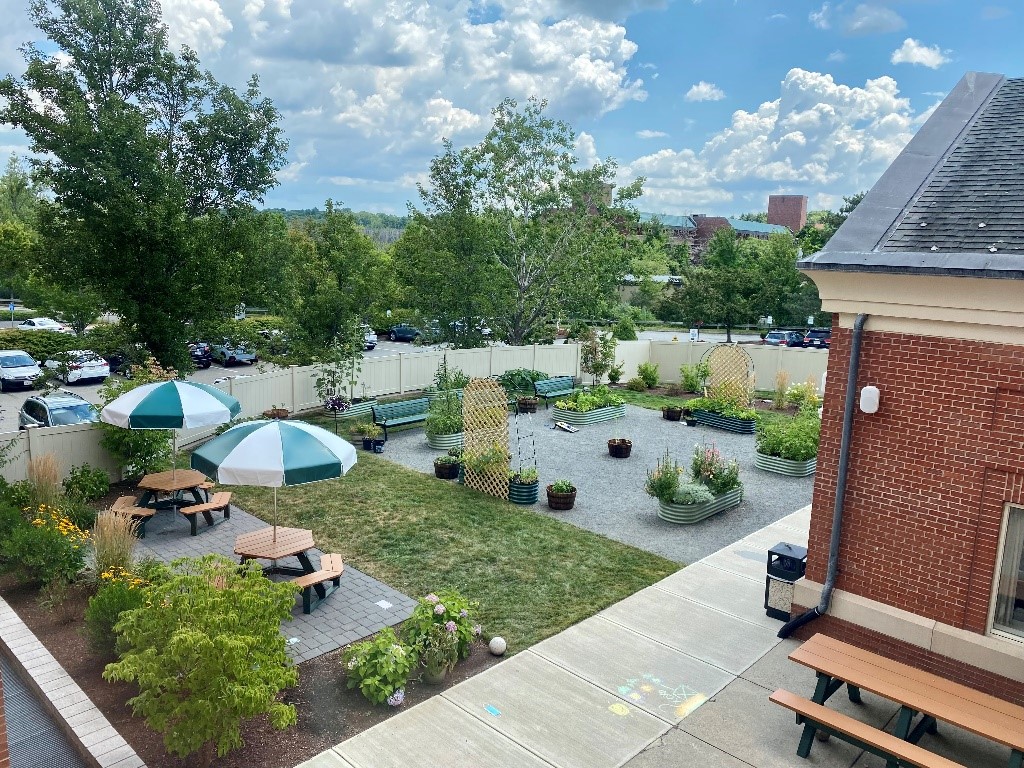A centerpiece for healing from eating disorders
A warm and inviting space for staff and clients alike, the therapeutic garden is a centerpiece to the healing energy at Walden’s Center for Recovery in Dedham, Massachusetts.
Our horticultural therapy program is part of Walden’s integrative therapies that are a multidisciplinary, patient-centered approach that addresses the mind, body, and spirit.
In addition to offering green space, fresh air, and sunshine, the garden is where we grow a vibrant sensory garden, local medicinal plants, fresh herbs, and different kinds of vegetables and fruit that we use alongside our clients in our coaching kitchen.
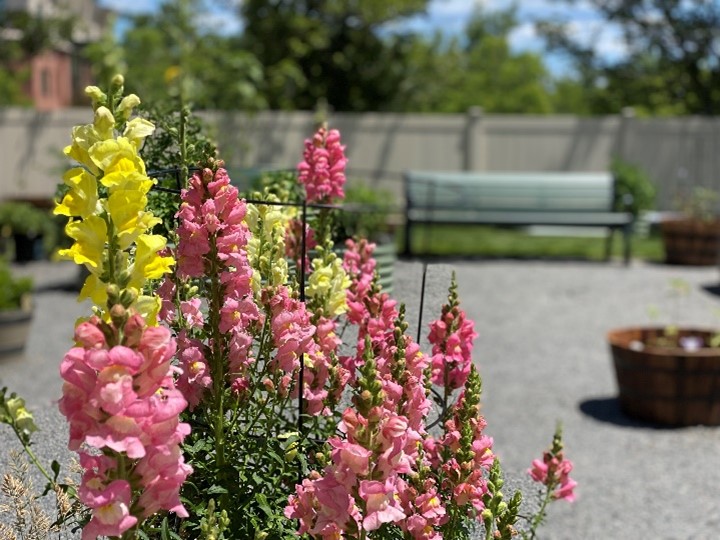
Seed to table
Garden therapy is an immersive, holistic treatment that allows our clients to become more in tune with themselves and with the nature around them.
We like to call it “seed to table.”
In the early Spring, clients begin nurturing seedlings and then plant them in the garden when they are large enough to thrive. This year, many of the seedlings were planted on Earth Day as a special way to celebrate the day.
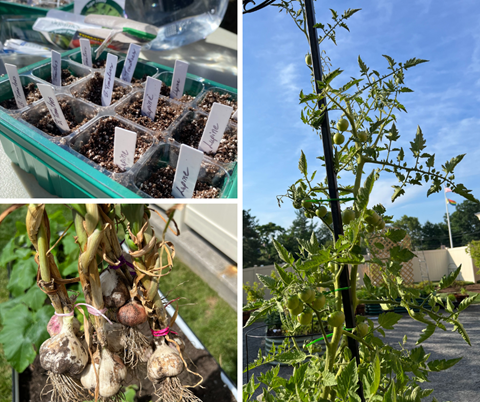
Once the vegetables, herbs, fruits and flowers are planted, our clients tend to the garden daily by watering, learning about the different growing processes, and finally harvesting the healthy and delicious food that will find its next stop in the culinary coaching kitchen.
A fun surprise this year was this fuzzy visitor who decided our garden was the perfect place to build a nest.
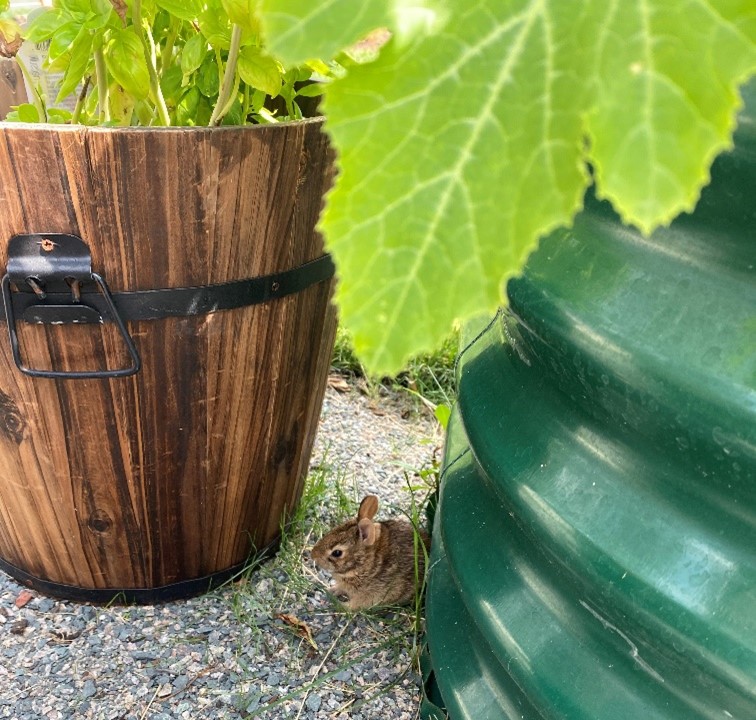
Gardening as part of eating disorder treatment
We grow vegetables, flowers, and herbs, and every patient is part of a weekly garden group to interact with the many different plants as well as fresh air. Our mission with garden therapy is to help each client in forming a positive relationship with food by actually touching, smelling, and finally tasting the food that they helped to bring to life.
For example, a client first starts with harvesting the fruits or vegetables and then works alongside our culinary coach to make a meal which incorporates those ingredients they picked fresh from the garden. The culinary coaching kitchen is a safe place where clients experiment with trying new foods, cooking techniques, and recipes. This is a critical way we help build skills that our clients will need upon returning home and continuing with their recovery.
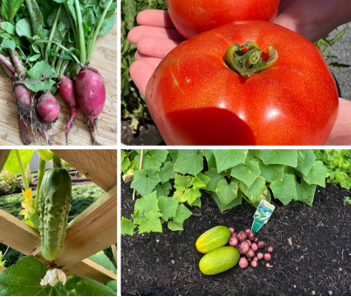
Horticultural therapy has proven to be an important tool for someone who is suffering from an eating disorder. The National Eating Disorder Association encourages those with eating disorders to cook to assist in their pathway to recovery and as a form of self-care, which is often low in those who are struggling with an eating disorder.
Cooking forces us to slow down and focus on what we are eating and allows us to be more attuned to our hunger and fullness cues. As a result, we can engage in intuitive eating which is something that individuals with eating disorders often have difficulty incorporating into their meals.
More about our holistic programming
We offer adults and adolescents at our Center for Recovery a holistic and creative therapeutic group program including garden therapy as well as expressive art therapy, dance movement therapy, heart rate variability biofeedback, yoga, music therapy, meditation and mindfulness, and more. We invite you to learn more about our integrative therapies.
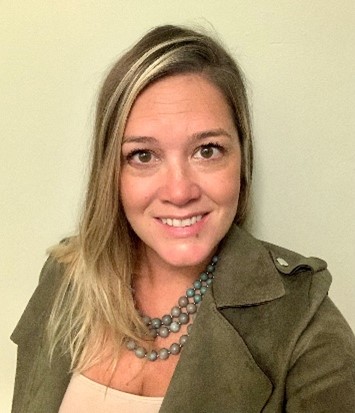
Erin Mackirdy (she/her/hers) has worked at Walden for six years and is currently the Coordinator of Culinary and Horticultural Education. A graduate of UMass Boston and currently pursuing a master’s in nutrition education, Erin started her journey in the culinary world as a private chef. She knew immediately that she had a passion to teach others how to cook and have fun with food. Erin has been instrumental in building the horticulture garden at Walden’s Center for Recovery and incorporating the home-grown ingredients into the culinary kitchen. Every day she helps the residents form a positive and healthy relationship with food by planting seeds, daily watering, harvesting the produce, and finally making delicious meals from the nutritious ingredients. This interactive approach provides hands-on therapy for the residents and skills they will use throughout their recovery journeys.
*This blog post does not necessarily represent the views of Walden Behavioral Care and its management. The Walden Blog is meant to represent a broad variety of opinions relating to eating disorders and their treatment.


